The Independent’s women of 2018: From Christine Blasey Ford to Michelle Obama
The female activists, politicians and actors who campaigned, rallied and fought for equality this year

Your support helps us to tell the story
From reproductive rights to climate change to Big Tech, The Independent is on the ground when the story is developing. Whether it's investigating the financials of Elon Musk's pro-Trump PAC or producing our latest documentary, 'The A Word', which shines a light on the American women fighting for reproductive rights, we know how important it is to parse out the facts from the messaging.
At such a critical moment in US history, we need reporters on the ground. Your donation allows us to keep sending journalists to speak to both sides of the story.
The Independent is trusted by Americans across the entire political spectrum. And unlike many other quality news outlets, we choose not to lock Americans out of our reporting and analysis with paywalls. We believe quality journalism should be available to everyone, paid for by those who can afford it.
Your support makes all the difference.When you look back on the past 12 months, it seems fitting to dub 2018 the year of the woman.
Not only were celebrations held across the UK to mark the centenary of women's suffrage, but millions of women also took part in marches around the world to drive change in the aftermath of #MeToo. Then, in May, there was a historic vote to legalise abortions in the Republic of Ireland. In the last 12 months, women's voices were louder than ever before – and people listened.
While there were clearly still battles to be fought in light of troubling rape trials, such as in Ulster, and allegations of sexual harassment against retail tycoon Sir Philip Green, the fact that these things were so highly publicised is a sign of empowered times: women will no longer be silenced.
One example of this was the launch of Time's Up, an organisation founded by 300 Hollywood women in January that provides legal funding to victims of sexual harassment in the workplace.
From the activists to the athletes, here’s our list of 15 of the most inspiring women who campaigned, rallied and fought for equality this year.
Dr Christine Blasey Ford: for the testimony that gripped the world
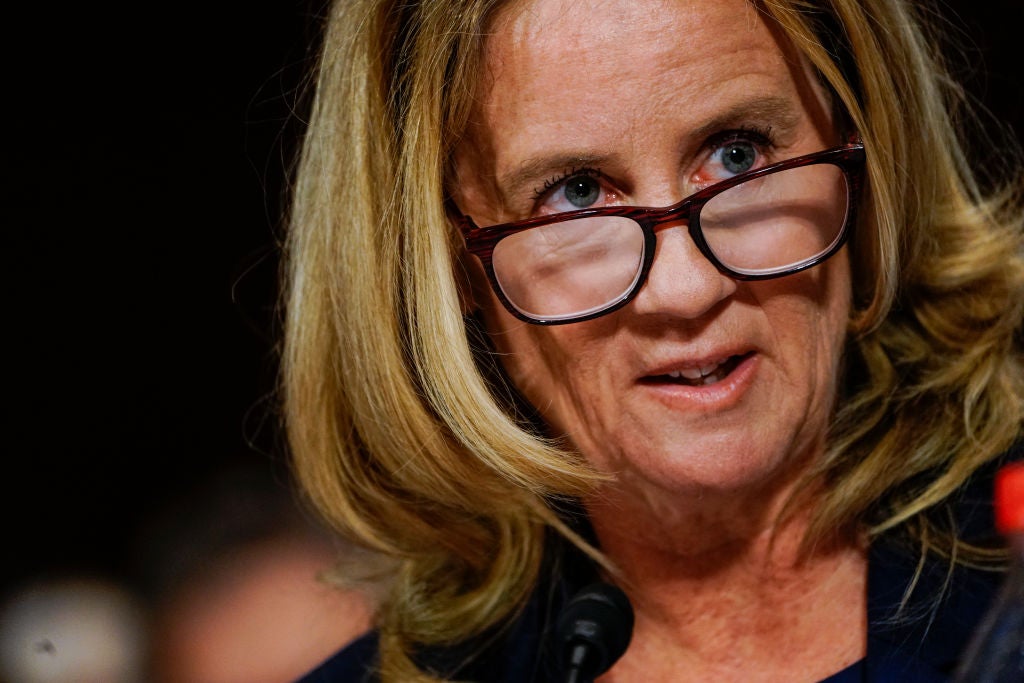
In September, Dr Christine Blasey Ford went from a college professor to a household name after she accused US Supreme Court nominee Brett Kavanaugh of sexual assault and waived her right to anonymity. In a letter written to Senate Democrats, Ford alleged that Kavanaugh forced himself on her at a party when the two were in high school more than 30 years ago.
The now 56-year-old said the incident had a lasting psychological impact on her. Kavanaugh denied the allegations and ascended to his role in the Supreme Court, but not before a widely publicised hearing that saw Ford give a memorable and deeply emotional testimony detailing her memories of that night.
“I am here today not because I want to be,” she said in her opening statement. “I am terrified. I am here because I believe it is my civic duty.” Ford’s unwavering bravery inspired thousands of people to come forward with their own experiences of sexual assault under the hashtag #WhyIDidn’tReport, which quickly went viral and shed light on the numerous reasons why victims of sexual violence may not report an incident until years after it happened.
Serena Williams: for the moment she stood up for female athletes everywhere
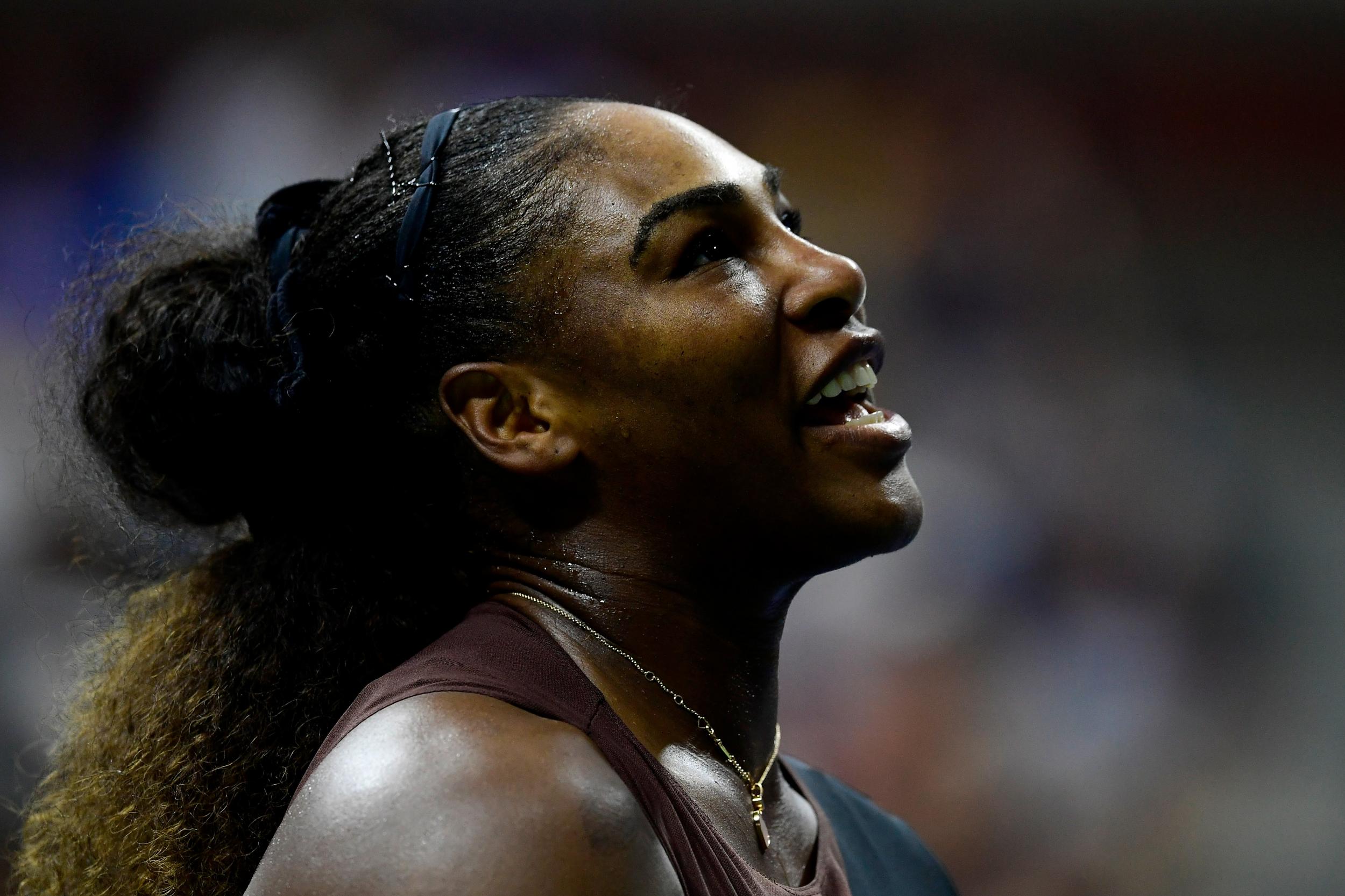
The 23-time grand slam tennis champion continues to impress the world with her sporting talents, having come second in this year’s Wimbledon and the US Open tournaments, but it was when she stood up for herself in the finals at the latter that she proved just how much of a renegade she is.
During the match against Naomi Osaka, the 37-year-old accused the umpire of treating her more harshly than men, which resulted in an on-court spat. Carlos Ramos said Williams had broken three code violations during the match for breaking her racquet, getting coaching signals and calling him a thief, which prompted a furore of criticism towards the tennis player on social media.
Speaking about the incident several weeks later at a media conference, Williams said she felt unfairly penalised: "I’ve seen other men call other umpires several things.
“I’m here fighting for women’s rights and for women’s equality and for all kinds of stuff. For me to say ‘thief’, and for him to take a game, it made me feel like it was a sexist remark. He’s never taken a game from a man because they said ‘thief’."
Williams also won praise this year for fronting a campaign to raise awareness of financial abuse, a form of coercive control in domestic partnerships. It can take various forms, but the most common ones are limiting a partner’s access to bank accounts and placing restrictions on their spending.
Gina Martin: for showing the government why they need to criminalise upskirting
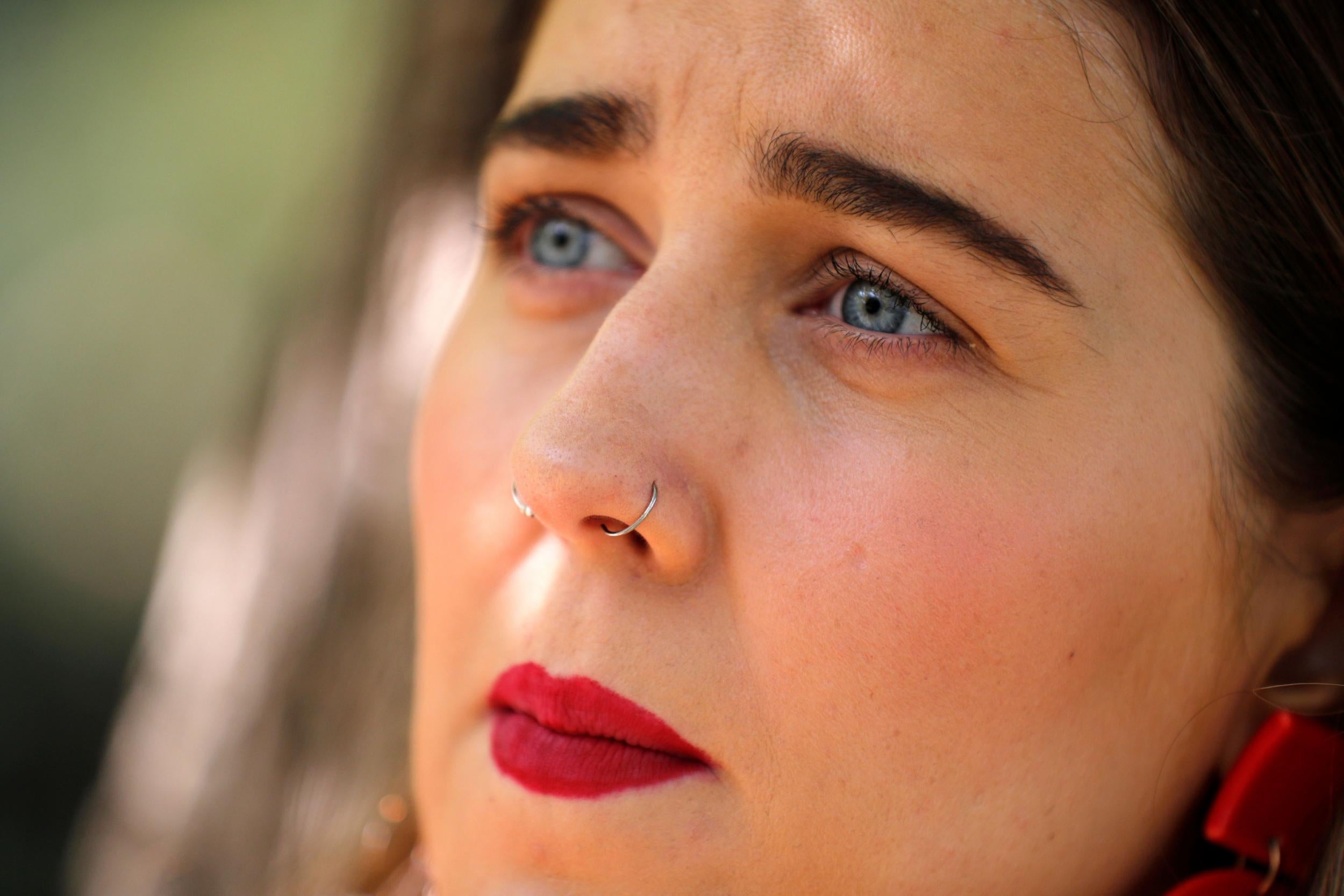
This was the year that the British government finally woke up to the horrors of upskirting, whereby someone takes an unsolicited photograph up someone’s skirt – and that was all thanks to Gina Martin.
The 26-year-old writer started campaigning to make upskirting a criminal offence after she experienced it herself at a festival last summer and was told by police that nothing could be done because it was not a registered crime.
The initiative received widespread support despite a brief interlude when the law was blocked by one Tory MP after it was put forward as a private member’s bill.
Shortly after, it was adopted as a governmental bill and is now almost through the House of Lords. It's expected that upskirting will be illegal by February 2019.
By starting the campaign herself and bringing it all the way to government, Martin is living proof that grassroots activism still has a crucial role to play in shaping societal reforms.
Caroline Criado Perez: for bringing women into Parliament Square
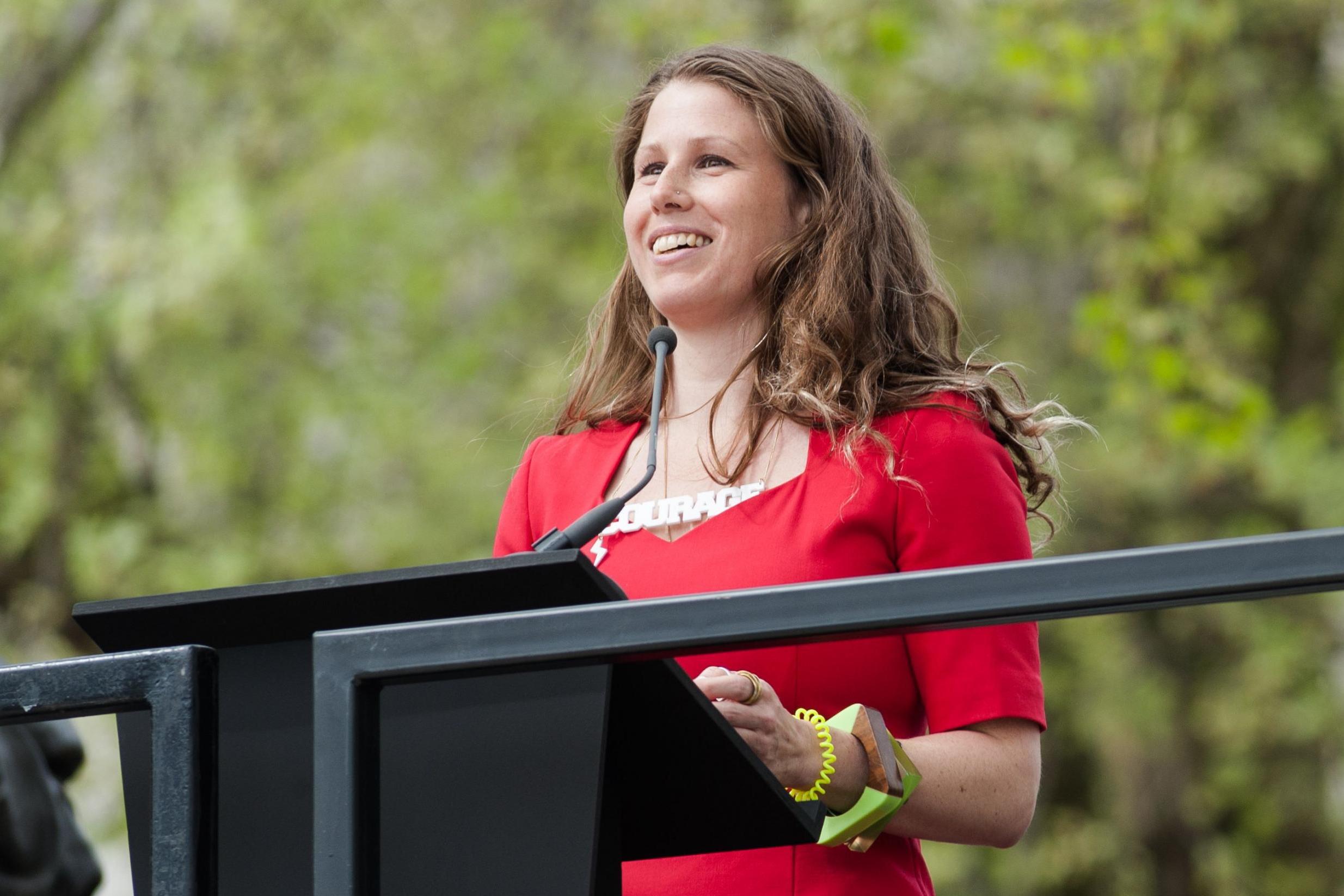
In April, celebrations for 100 years of women's enfranchisement reached their peak when a statue of the suffragist Millicent Fawcett made by the artist Gillian Wearing was unveiled opposite Parliament. On it, there is a slogan that read, "courage calls to courage everywhere".
This was largely due to the work of Caroline Criado Perez, who spent the last two years campaigning to get a statue of a woman in Parliament Square given that there were previously only ones of men, such as Nelson Mandela and Sir Winston Churchill.
On the day of the unveiling, Theresa May honoured the campaigner’s “truly great” work, which she said would have a “lasting impact” on society.
Fawcett was a leading women's rights campaigner in the late 1800s and founded the biggest suffrage organisation, the National Union of Women’s Suffrage Societies, in 1897.
Halsey: for her poignant poem about sexual assault
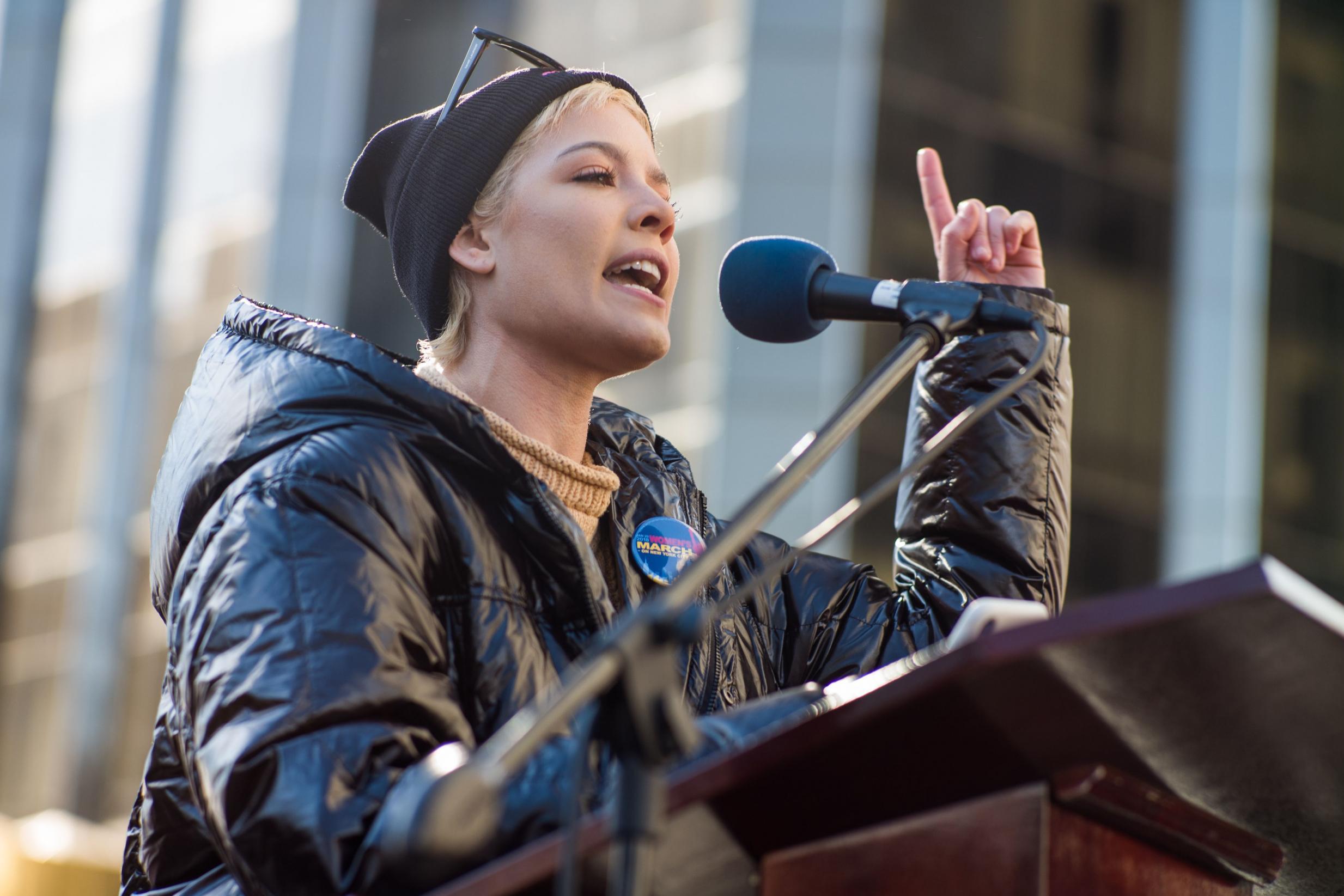
The American singer (real name is Ashley Nicolette Frangipane), garnered widespread praise in January for delivering a powerful poem at 2018’s Women’s March in New York City about sexual assault.
Through rhyming lines, she recalled being abused by an ex boyfriend who forced her to have sex with him, using his age and financial supremacy as leverage – “he buys my dinner, so I have to blow him”.
Titled “A Story Like Mine”, the poem also detailed the 24-year-old’s memories of sitting in a waiting room at Planned Parenthood, the nonprofit that provides reproductive and sexual healthcare in the US, alongside a female friend who had been raped by a man involved in their after-school programme.
“It’s 2018 and I’ve realised nobody is safe long as she is alive, and every friend that I know has a story like mine,” she added, before going on to highlight how many women have suffered at the hands of societal misconceptions around assault: “the world tells me we should take it as a compliment”.
Halsey concluded her poem by addressing women of all backgrounds and sexual orientations, calling on them to speak up, but crucially, to also listen.
“Be a voice for all those who have prisoner tongues... Lord knows, there’s a war to be won,” she said to rapturous applause and tears.
The singer’s words struck a chord with thousands of people, with a video of the speech in its entirety garnering more than 7.5m views on Twitter.
Emma Gonzalez: for proving silence speaks louder than words
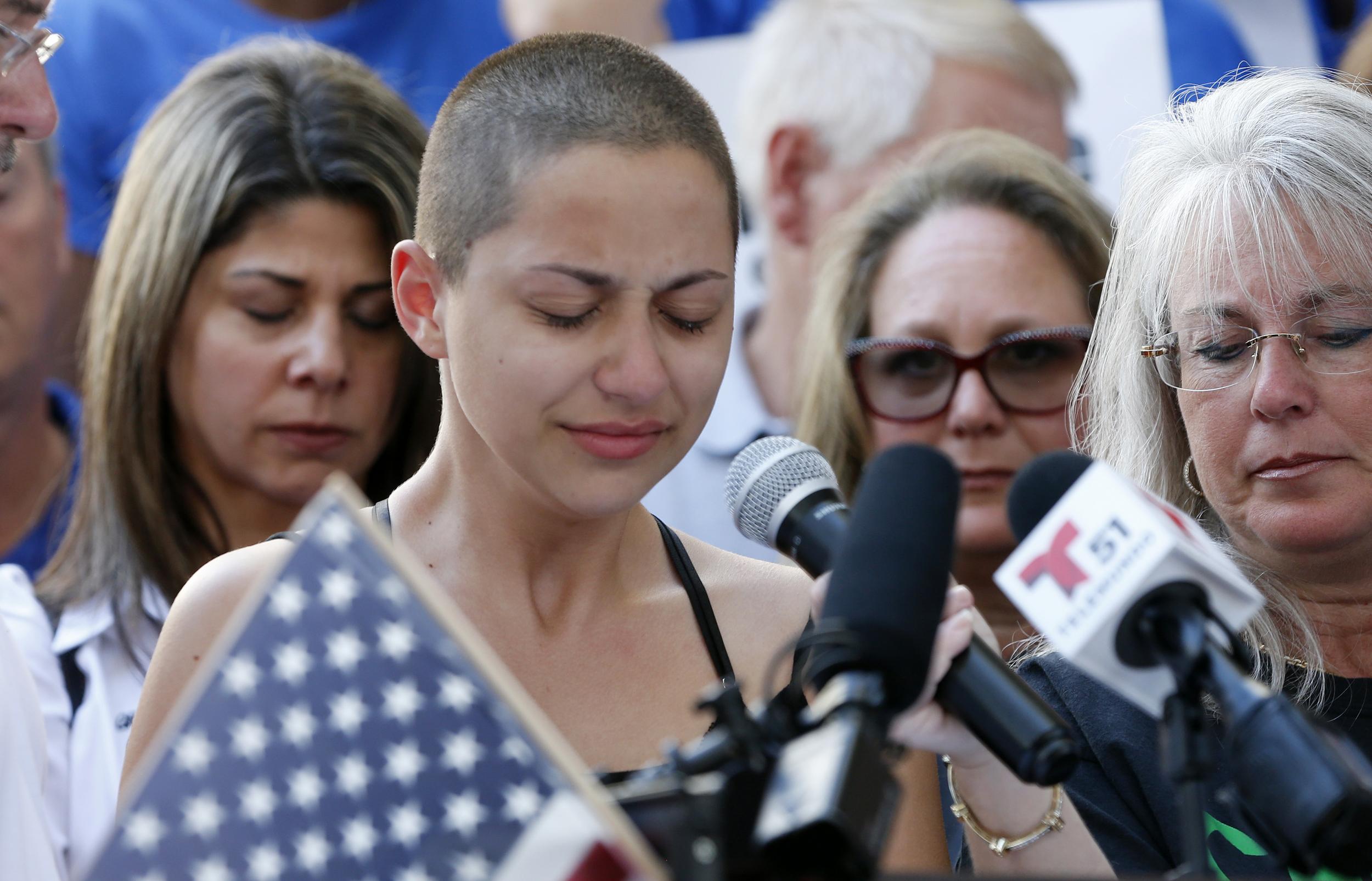
The Parkland school shooting on 14 February was the worst high school shooting in American history, leaving 17 students dead and many more injured.
19-year-old Emma Gonzalez was at the school that afternoon and lost some of her closest friends.
She has since become a leading activist for gun control, making countless powerful speeches at rallies that went viral on social media.
But it was her speech at the March for our Lives rally in Washington on 24 March that people around the world will remember her for. After reading the names of the victims to a crowd of thousands, she went silent for six minutes and 20 seconds, which is exactly how long it took for the gunman to enter the school and kill those she'd just named.
Her silence, and that of the crowd, was more evocative than words could've ever been.
Lady Gaga: for delivering a powerful speech about sexual assault
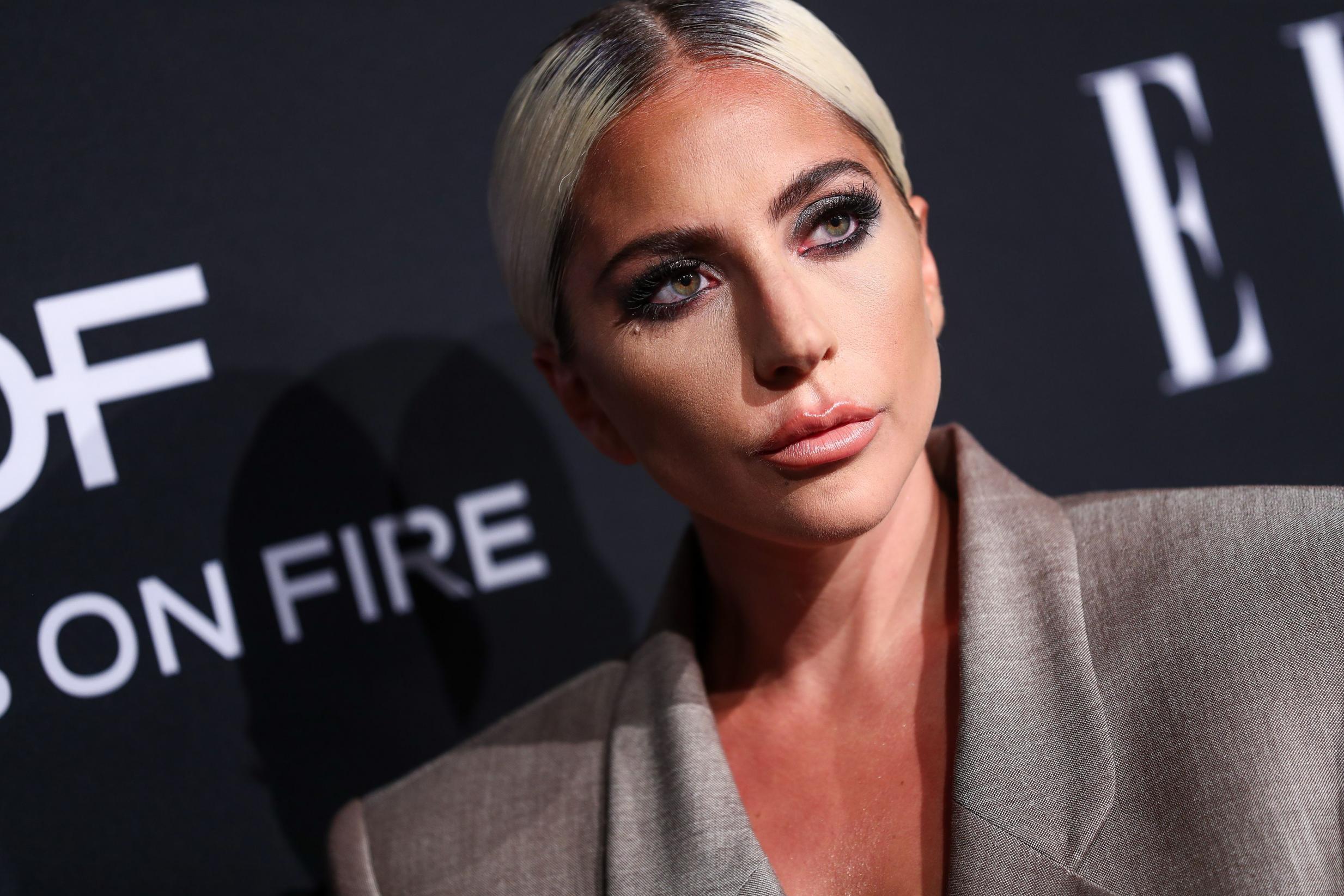
Lady Gaga has been making headlines for all the right reasons in recent months – and it’s not just because of her leading role in A Star is Born, which has earned her a Golden Globe nomination for best actress. In October, she delivered a powerful speech at Elle’s Women in Hollywood event where she spoke candidly about her struggles with mental health, living with chronic pain and being sexually assaulted when she was 19 years old.
The singer used her outfit – a loose-fitting, Eighties power suit – as a metaphor for subverting gender norms, explaining how eschewing a gown made her feel like she was reclaiming some of the autonomy she felt was taken from her when she was assaulted.
Gaga also used her speech to highlight how women are marginalised in Hollywood. “We are not just objects to entertain the world,” she said. “We are not simply images to bring smiles or grimaces to people’s faces [...] We have deep thoughts and ideas and beliefs and values about the world and we have the power to speak and be heard and fight back when we are silenced.”
Her speech sparked an outpour of admiration, cementing Gaga’s place as one of the most important voices in Hollywood today.
Alexandria Ocasio-Cortez: for being a political inspiration at 29 years old
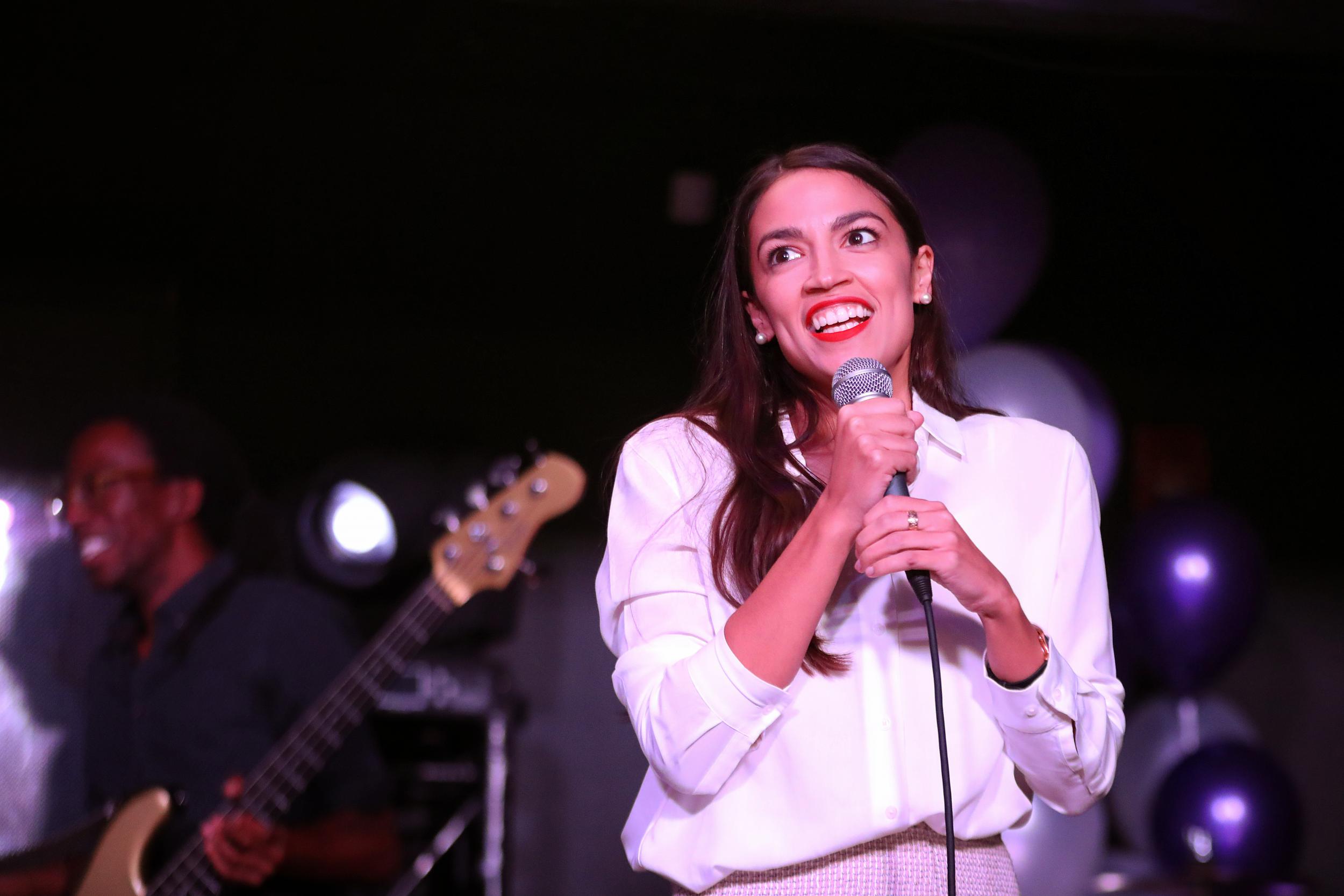
At 29 years old, Ocasio-Cortez is the youngest woman ever to be elected to Congress, having earned 75 per cent of the vote for New York’s 14th Congressional District in the US mid-term elections.
The Democrat has been praised as a rising star among the left. But her transgressive politics aren't the only thing people are impressed by. In December, she was hailed for speaking openly about the need to take time out from work in order to maintain good mental wellbeing, which is the kind of candour one may expect from a social media influencer rather than a politician.
“I am starting a week of self-care where I am taking the week off and taking care of me. I don’t know how to do that though, so I would appreciate any and all self-care tips,” she wrote in an Instagram story, writing a similar post on Twitter.
She also happens to have won educator of the year awards, founded a publishing company that specialises in children’s books and led numerous campaigns for human rights.
Michelle Obama: for being honest about overcoming adversity
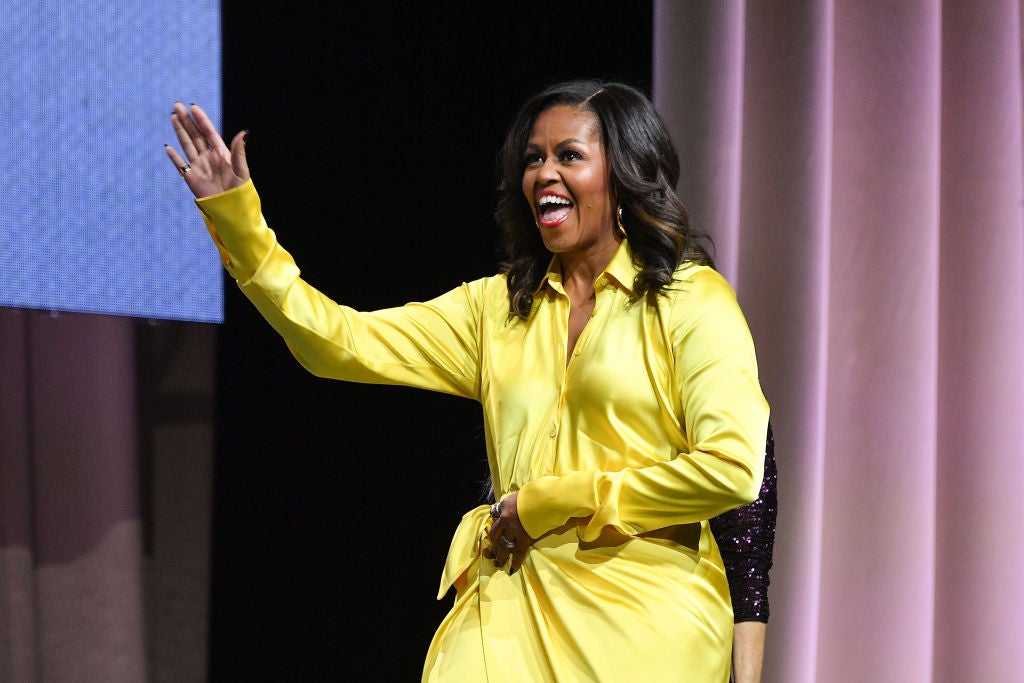
Thanks to the publication of her memoir, Becoming, in November, the former first lady has been back in the limelight in recent months, doing countless talks and TV appearances as part of a promotional tour.
In the book, Obama speaks openly about her life as a first lady, explaining how she felt anxious about being the first African-American woman to take on the role.
"I was ‘other’ almost by default,” she writes. “If there was a presumed grace assigned to my white predecessors, I knew it wasn’t likely to be the same for me.”
She also reflects on the Sandy Hook shooting that claimed the lives of 20 students and six teachers in December 2012, explaining how it was by far the hardest moment of her husband's presidency.
But it was her emotional account of having a miscarriage 20 years ago that touched the most hearts, given how rarely this common issue is spoken about in the public eye, least of all by someone of Obama’s status.
“I felt lost and alone and I felt like I failed because I didn’t know how common miscarriages were – because we don’t talk about them,” she said in an interview on Good Morning America that aired the week before her book was published.
“We sit in our own pain thinking that somehow we’re broken. That’s one of the reasons why I think it’s important to talk to young mothers about the fact that miscarriages happen.”
Thanks to the success of Becoming, Obama has become the first person of colour to top the UK’s Christmas book chart. She is also the first woman to gain the accolade since JK Rowling, who did so in 2008 with Harry Potter and the Deathly Hallows.
Frances McDormand: for demanding diversity in film
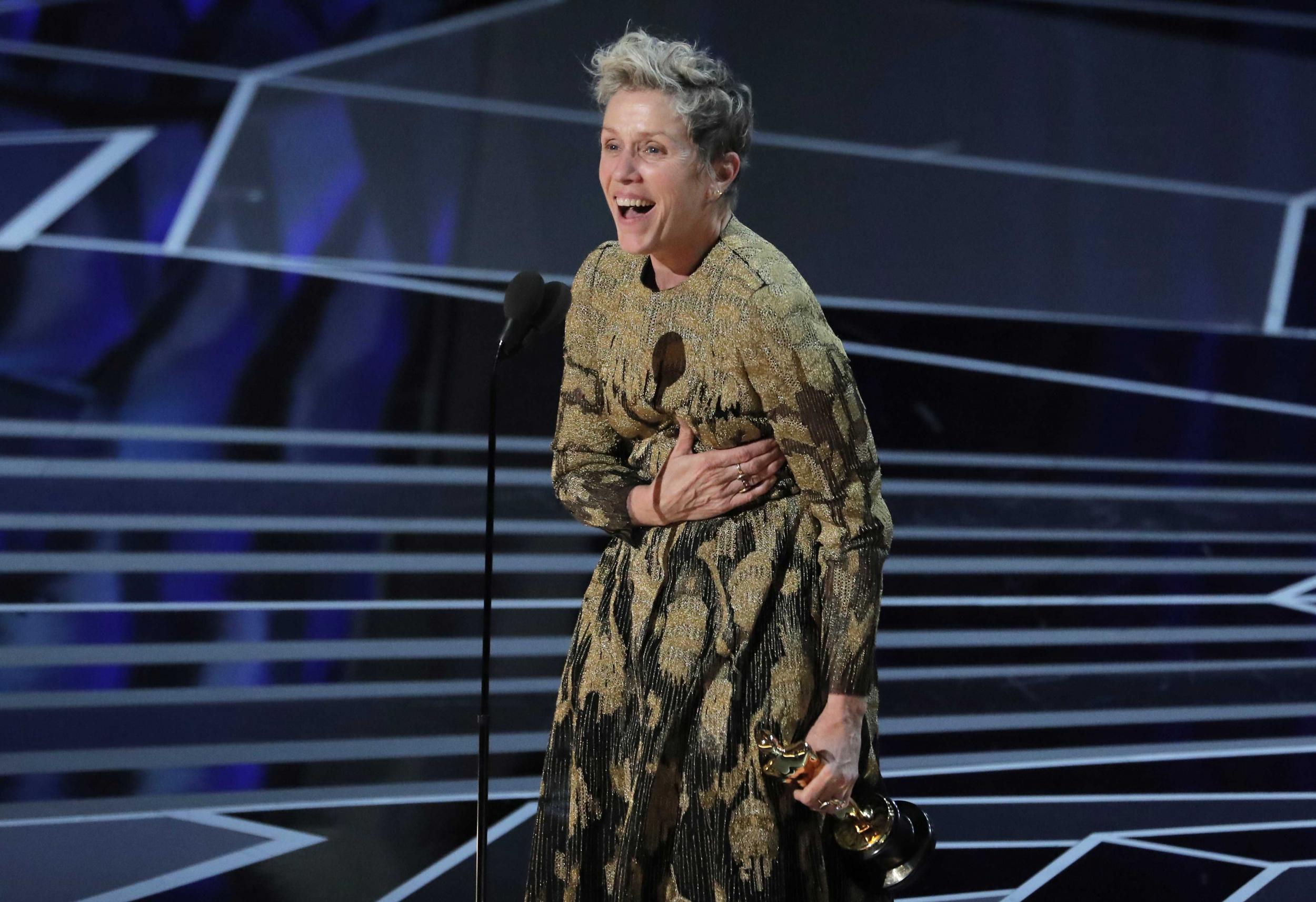
After winning the Oscar for best actress for her no-nonsense performance in Three Billboards Outside Ebbing, Missouri, the actor delivered one of the most talked-about acceptance speeches in awards season history.
McDormand, who thanked her co-stars and Martin McDonagh, the film's writer and director, said, “I have two words to leave with you tonight, ladies and gentlemen: inclusion rider."
Soon becoming one of the most-Googled phrases of the year, increasing in search by 100 per cent at the time, an inclusion rider is a clause in an actor’s contract drawn up when they sign on to a film that demands the cast and crew consist of a mix of genders, ethnicities and sexual orientations. If it doesn't, the actor will not participate.
By bringing people’s attention to the clause's existence in such a high-profile setting, McDormand raised awareness for the need to diversify the film industry (see #OscarsSoWhite) and keep pushing for change.
Irish pro-choice campaigners: for changing the lives of women in the Republic of Ireland
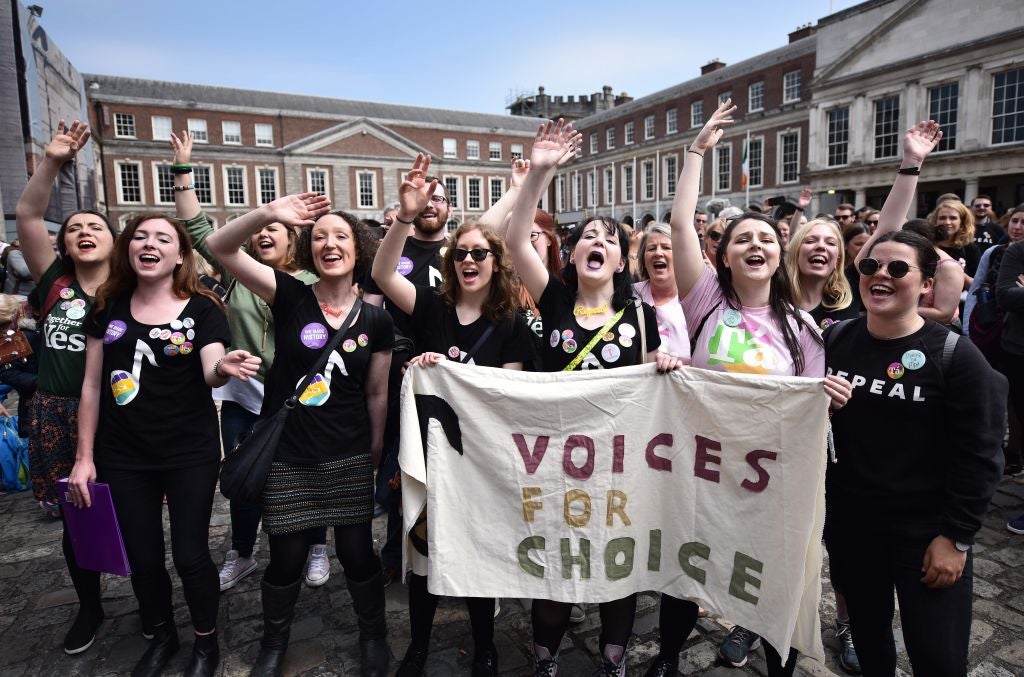
In May, the republic of Ireland voted to repeal its eighth amendment, which meant women could finally get access to legal and safe abortions for the first time.
The vote was celebrated by women around the world and was truly a watershed moment for women's rights.
But it wouldn’t have happened had it not been for the hard work of #RepealThe8th campaigners, the majority of whom operated under a group named Together for Yes. The campaign was spearheaded by women in the country, some of whom had been personally affected by Ireland’s draconian laws on abortion.
The referendum galvanised grassroots organisations across Ireland, such as Parents for Choice, Disabled People for Choice and Grandparents for Repeal, which was set up by Carol Hunter in a bid to promote the pro-choice ideologies held by elderly people.
Nadia Murad: for being the first Iraqi to win the Nobel Peace Prize
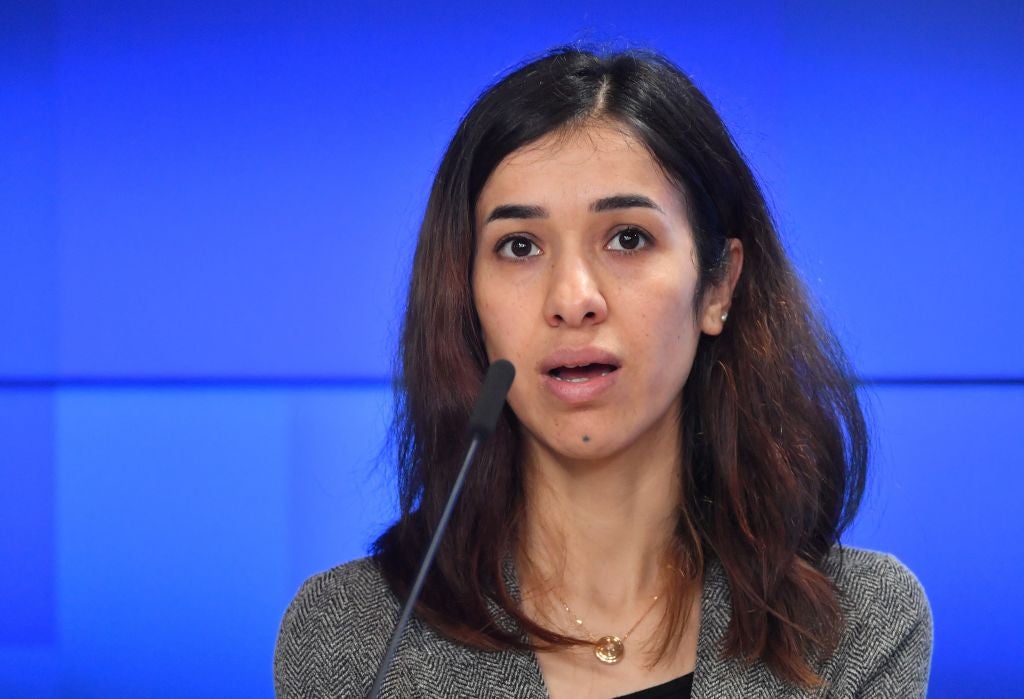
In September 2014, Nadia Murad, 25, was captured by Isis and spent the next two months living as a sex slave along with other Yazidi women who are part of a religious minority that is indigenous to northern Iraq.
She endured a torrent of physical and sexual abuse, but was able to escape in November and has since become one of the most inspiring female activists in the world, campaigning to put an end to human trafficking.
Murad became the first UN goodwill ambassador for survivors of trafficking in 2016 when she was just 23 years old.
In October this year, she was awarded the Nobel Peace Prize.
Time’s Up founders: for campaigning to put an end to sexual harassment in the workplace
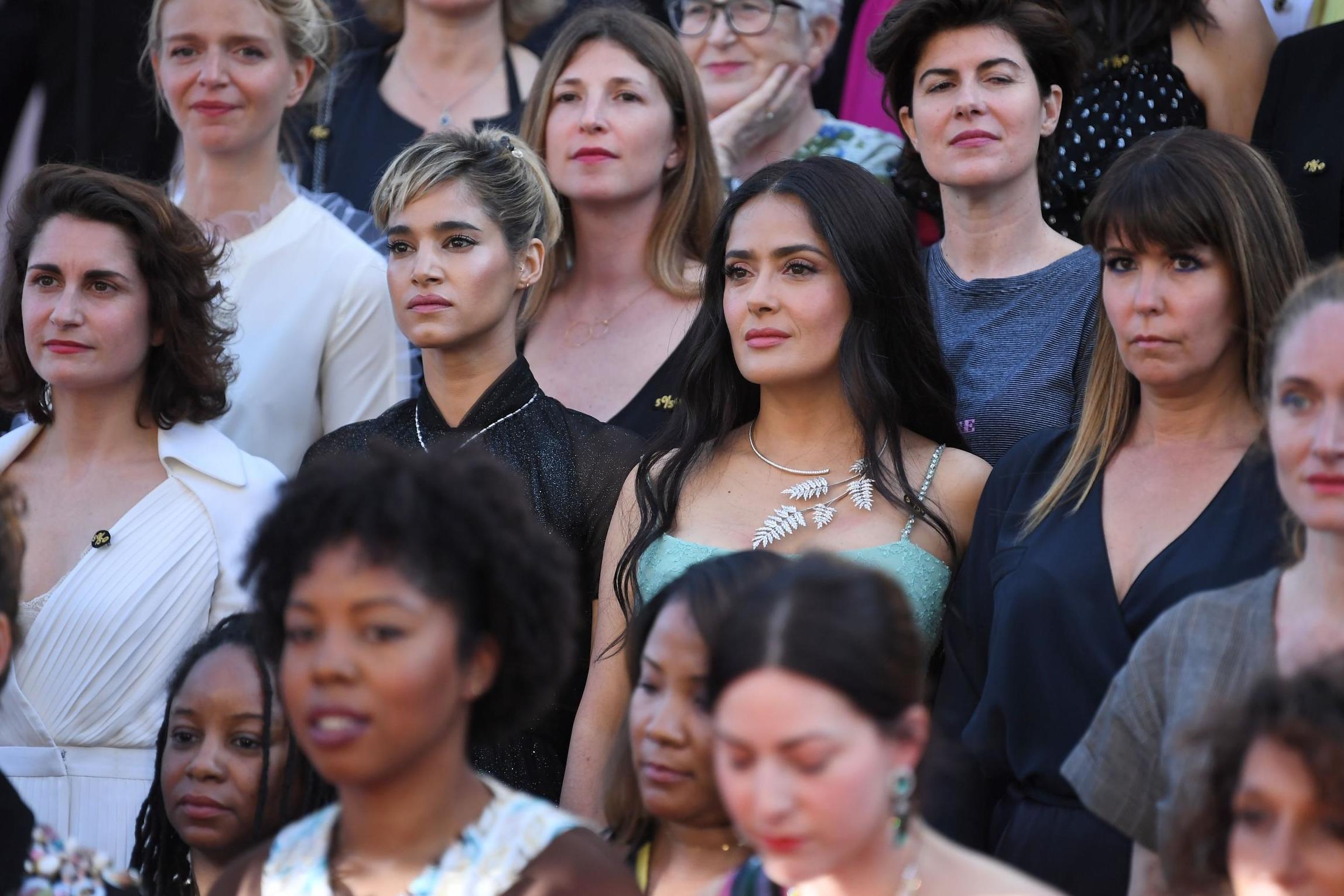
In January, for the first time ever, the red carpet at the annual Golden Globe awards was awash with black, with the majority of attendees eschewing colour for something a little more sombre.
But this wasn’t simply an act of sartorial rebellion. This was an act of defiance to promote the newly launched Time's Up campaign, which was founded by 300 women in Hollywood, including Grey's Anatomy writer Shonda Rhimes and actor Jessica Capshaw. The aim of Time's Up is to raise money for a legal defence fund, set up by lawyer Roberta Kaplan, which provides legal defence for victims of sexual misconduct, with a focus on those who have experienced it at work.
It was set up partly in response to the #MeToo movement, which took off in October 2017 after numerous allegations of sexual assault emerged against Hollywood producer Harvey Weinstein, which he denies.
Meghan Markle: for defying royal traditions in the best possible way
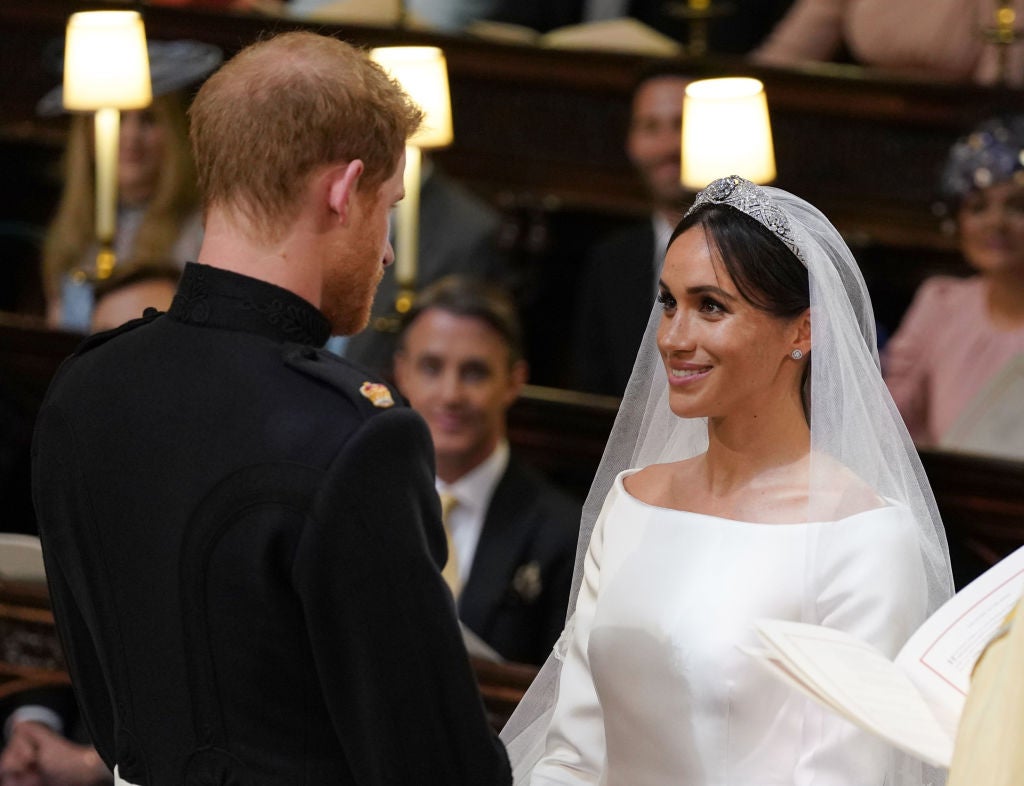
It was quite the year for Meghan Markle. Not only did the 37-year-old marry Prince Harry in one the most publicised weddings in history and become a member of the royal family, months later it was revealed that she was expecting her first child.
The newly appointed Duchess of Sussex was praised for having one of the most racially inclusive royal weddings to date, with a performance from a black gospel choir and a passionate sermon by an African American preacher, which became one of the most talked-about moments of the day.
Markle also made a feminist statement at her wedding by walking herself down the aisle until she reached the Quire, where she was joined by Prince Charles, who escorted her for the rest of the way. Charles also didn’t participate in the archaic act of “giving away” the bride, which sees the father “pass” his daughter to her husband-to-be. Instead, when they reached the altar, he stood back and Markle approached Prince Harry by herself.
Since becoming a Duchess, the former actor has continued to prove that members of the royal family can be modern and subversive. As well as wearing whatever she wants, she genuinely engages with her fans and is vocal about her feminist values. Oh, and she closes her own car doors.
Join our commenting forum
Join thought-provoking conversations, follow other Independent readers and see their replies
Comments